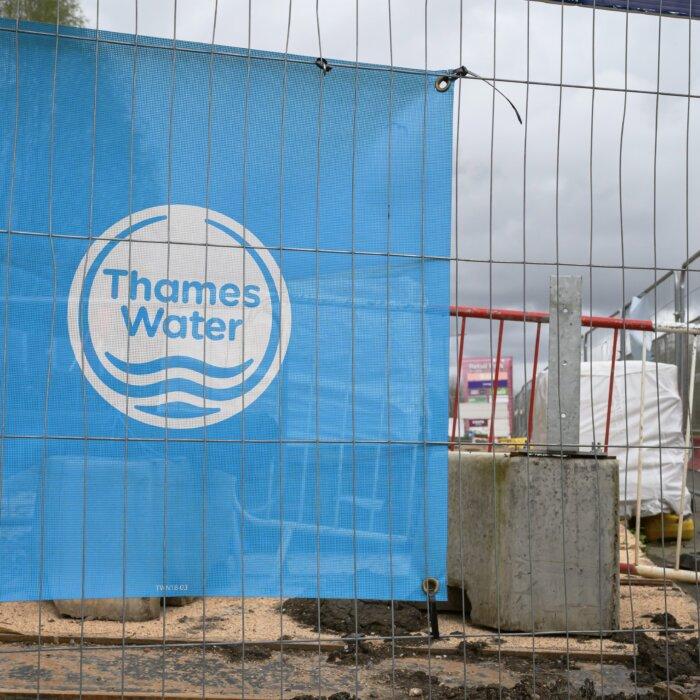Crisis-hit Thames Water has announced it has sufficient funds to operate until the end of next year but will continue to seek new sources of funding from potential investors.
The UK’s biggest water company has reported a debt of £15.2 billion in the year to March.
Thames Water said its cash reserves at the end of June amounted to £1.8 billion. This is a drop of £0.6 billion from the firm’s liquidity, reported in April.
The firm’s parent company, Kemble Water Holdings Ltd., pulled £500 million in interest payments, due at the end of April. As a result, Thames Water had defaulted on some of its debts, heightening concerns of its survival.
The utility firm has until July 11—a deadline by water sector regulator Ofwat—to produce the required investment for the company to stay afloat. In its draft ruling, due on Thursday, Ofwat will also say how much water companies can charge their customers for the next five years.
If Thames Water were to go bust, contingency plans drawn by the former government, dubbed “Project Timber,” could see the company nationalised. Mr. Weston said that it’s not in the interests of customers or investors for the company to fall into government hands.
However, Communities Minister Jim McMahon said on Tuesday that there is “no programme of nationalisation for the water industry.”
He said that there is “no provision in law for a water company to stop providing water” and that there is always a “contingency in place.”
“We recognise that, over the last 14 years, frankly, the water industry hasn’t been regulated anywhere near as firmly as it should have been, and we haven’t seen the investment to deal with the sewage scandal.”
Pollution and Regulation
In the past several years, Thames Water has been part of a nationwide pollution scandal that has uncovered poor environmental records by water companies. Thames Water has been found to pump raw sewage into waterways.“Our performance in pollution and sewage discharges is not where it should be or where we want it to be. The number of reportable pollutions increased during the year to 350 from 331,” said Mr. Weston.
He attributed the spike in pollution to prolonged periods of heavy rainfall, which he said led to an increase in sewage discharges to 16,990 from 8,015 in 2023.
“As part of our Turnaround Plan, we are prioritising targeted cleaning of the network to prevent blockages, the biggest cause of network pollutions,” Mr. Weston said.
Before entering Downing Street in July, Sir Keir Starmer’s Labour Party said it would “put failing water companies under special measures to clean up our water.”
It vowed to impose severe fines for wrongdoing and “ensure independent monitoring of every outlet.”
The prime minister’s official spokesman told reporters on Monday:
“We talked about giving regulators the power to block payment of bonuses to executives who pollute our waterways and impose automatic and severe fines on them for wrongdoing.”
Thames Water leadership believes that “with the right time, money and resources” the business can be turned around.
Ofwat’s draft verdict, coming on Thursday, will kick off six months of negotiations with Thames Water, with the final decision by the regulator expected in December.
Ofwat’s decision is a “critical enabler” of the company’s success, said Mr. Weston, adding that as the deadline gets closer, the “speculation about the future of the company will inevitably intensify.”






